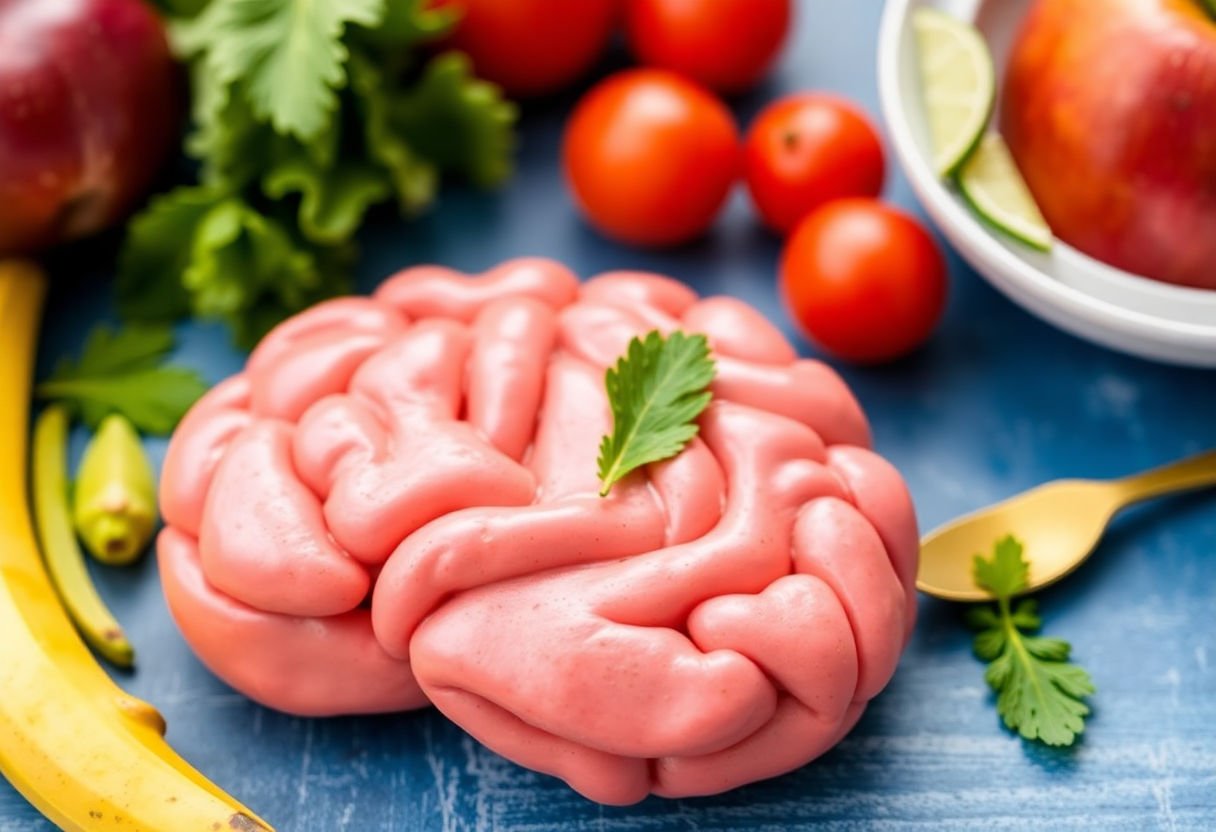Understanding the critical role of Vitamin B6 in children’s development has become increasingly important in today’s fast-paced world. This essential nutrient not only contributes to cognitive growth but also plays a pivotal role in enhancing brain power and overall well-being. From supporting neurotransmitter production to aiding in physical development, Vitamin B6 is an indispensable component of a child’s diet. This article delves into the various facets of Vitamin B6, including its functions, health benefits, and potential consequences of deficiency, guiding parents and caregivers in fostering healthier, smarter futures for their children.
Key Takeaways
- Vitamin B6 plays a vital role in enhancing brain development and cognitive function in children.
- Deficiency in Vitamin B6 can lead to adverse effects on both cognitive and physical health in youngsters.
- A balanced intake of Vitamin B6 through diet is recommended to support children’s developmental needs fully.
- Understanding the relationship between Vitamin B6 and mental health can help support emotional well-being in children.
What is Vitamin B6?

Vitamin B6, also known as pyridoxine, is a water-soluble vitamin that plays a pivotal role in the overall health and development of children. It exists in various forms, including pyridoxal, pyridoxamine, and their respective phosphate derivatives, which are all active in the human body. These forms work collectively to facilitate a range of physiological functions.
In the body, Vitamin B6 is instrumental in over 100 enzyme reactions involved in metabolism. One of its primary functions is to aid in the conversion of food into energy. It does so by assisting in the metabolism of proteins, fats, and carbohydrates, thus contributing to energy production and proper growth.
Moreover, Vitamin B6 is essential for the synthesis of neurotransmitters, the chemical messengers in the brain responsible for conveying signals between nerve cells. This process is crucial for brain development and function, influencing everything from cognitive capabilities to mood regulation.
Additionally, Vitamin B6 is vital for the formation of hemoglobin, the protein in red blood cells that carries oxygen throughout the body. It also supports immune function and the synthesis of neurotransmitters like serotonin, dopamine, and gamma-aminobutyric acid (GABA), all of which play significant roles in maintaining mood and mental health.
Understanding the complexity and versatility of Vitamin B6 underscores its critical importance in child development, particularly concerning cognitive abilities and physical growth. By ensuring an adequate intake of this vital nutrient, parents can support their children’s brain health and overall well-being.
The Role of Vitamin B6 in Brain Development

Vitamin B6, also known as pyridoxine, is a vital nutrient for brain development in children. This essential vitamin plays a crucial role in the creation of neurotransmitters, which are chemicals that transmit signals in the brain and the nervous system. Neurotransmitters such as serotonin, dopamine, and gamma-aminobutyric acid (GABA) are indispensable for balanced mood and healthy brain function.
Neurotransmitter Production: Vitamin B6 is involved in synthesizing neurotransmitters by converting amino acids, the building blocks of proteins, into the essential neurotransmitters that modulate brain activities. This process helps maintain a robust communication network within the brain, which is necessary for cognitive processes like learning and memory.
Brain Growth and Development: During childhood, the brain undergoes rapid growth and development. Adequate levels of Vitamin B6 contribute to the myelination process, where nerve fibers are coated with a protective sheath called myelin. Myelin is critical for efficient nerve signal transmission, facilitating the rapid processing of information and enhancing cognitive abilities.
Furthermore, Vitamin B6 supports the synthesis of hemoglobin, a protein in red blood cells responsible for transporting oxygen to the brain. Proper oxygen supply is crucial for maintaining healthy brain cells and optimizing brain function.
In summary, Vitamin B6’s contribution to both neurotransmitter production and brain growth underscores its significance during the formative years of childhood. Adequate intake of this vitamin is imperative to support the cognitive and emotional development of children, setting a foundation for lifelong brain health.
Effects of Vitamin B6 Deficiency
Vitamin B6 deficiency can significantly impact children’s cognitive and physical health, leading to a range of developmental issues. Cognitive impairments may be among the most noticeable consequences. Since Vitamin B6 is vital for neurotransmitter synthesis, insufficient intake can hinder effective communication between nerve cells, potentially resulting in learning difficulties, memory problems, and reduced concentration.
Physical symptoms of Vitamin B6 deficiency are also critical to consider. Children might experience weakened immune functions, increasing their susceptibility to infections. Moreover, Vitamin B6 is essential for the production of hemoglobin; hence, deficiency might lead to anemia, characterized by fatigue and weakness. In severe cases, children could encounter issues such as irritability and confusion, which might be mistaken for other developmental problems.
Furthermore, emotional and behavioral changes in children can be linked to low levels of Vitamin B6. This vitamin plays a role in serotonin regulation, a neurotransmitter that influences mood. Deficiency might therefore lead to mood swings, depression, or anxiety.
Recognizing these potential effects highlights the importance of ensuring adequate Vitamin B6 intake in children’s diets. Regularly including Vitamin B6-rich foods like bananas, potatoes, and fish can prevent these adverse outcomes and support optimal growth and development. Being attentive to these symptoms and maintaining a balanced diet can aid parents and caregivers in safeguarding their children’s health and well-being.
Recommended Dietary Sources of Vitamin B6
Vitamin B6 is an essential nutrient for children, found in various foods that can be easily incorporated into their diet. Poultry, such as chicken and turkey, is an excellent source of Vitamin B6. These lean proteins are not only rich in B6 but also contribute to muscle growth and overall development.
Fish, particularly salmon and tuna, are not only abundant in Vitamin B6 but are also high in omega-3 fatty acids, which are crucial for brain health. Adding fish to a child’s meal plan can significantly boost their brain power while providing essential nutrients.
Vegetables like potatoes, spinach, and other leafy greens offer a plant-based option rich in Vitamin B6. These vegetables are versatile and can be included in various dishes, ensuring that children receive a balanced intake of vitamins and minerals.
Nuts and seeds, including sunflower seeds and pistachios, also contribute to Vitamin B6 intake. They provide a nutritious snack option that supports cognitive function while delivering other health benefits like healthy fats and proteins.
Whole grains, such as brown rice and oats, are another staple for a Vitamin B6-rich diet. They serve as excellent energy sources, which are necessary for active children.
Finally, fortified cereals present a convenient way to incorporate Vitamin B6 into breakfast routines. Many cereals are enriched with essential vitamins, including B6, making them suitable for picky eaters who require a nutrient-dense diet.
Incorporating these diverse food options ensures that children receive the necessary amount of Vitamin B6, supporting their cognitive and physical development.
Vitamin B6 Daily Requirements for Children
In order to ensure the optimal cognitive and physical development of children, understanding the daily requirements of Vitamin B6 is crucial. Vitamin B6, also known as pyridoxine, plays a fundamental role in numerous bodily functions, including neurotransmitter synthesis, which is vital for brain health. The recommended daily intake varies depending on the child’s age, reflecting the different nutritional needs at various growth stages.
For infants up to 6 months, the advised intake is 0.1 mg per day, while those aged 7 to 12 months should receive 0.3 mg. Children between 1 to 3 years require an increase to 0.5 mg daily to support rapid growth and development. As children progress to 4 to 8 years of age, the recommended amount rises to 0.6 mg.
In the case of older children, ages 9 to 13 years, the need grows to 1.0 mg daily, aligning with the developmental demands of adolescence. For teenagers, the intake differs slightly by gender due to differing metabolic and biological needs; boys aged 14 to 18 are recommended 1.3 mg, while girls require 1.2 mg per day.
Ensuring that these dietary needs are met is important not only for supporting cognitive functions but also for enhancing overall health and well-being. Parents and caregivers should provide a balanced diet that includes Vitamin B6-rich foods, thereby fostering a foundation for the child’s robust development and long-term mental acuity.
Supplementing with Vitamin B6: Do’s and Don’ts

When considering Vitamin B6 supplements for children, it is crucial to adhere to certain guidelines to ensure safety and efficacy. While Vitamin B6 plays a vital role in cognitive development, improper supplementation can lead to adverse effects.
Do’s:
- Consult a Healthcare Professional: Always seek advice from a pediatrician before introducing any supplements. They can assess the child’s specific needs and recommend an appropriate dosage.
- Follow Recommended Dosages: Ensure that the amount of Vitamin B6 adheres to recommended daily allowances (RDA) based on the child’s age and health status. Generally, children aged 1-3 years require 0.5 mg per day, while those aged 4-8 years need 0.6 mg per day.
- Incorporate a Balanced Diet: Supplements should complement, not replace, a balanced diet rich in natural sources of Vitamin B6, such as bananas, poultry, and fish.
Don’ts:
- Avoid Over-Supplementation: Excessive intake of Vitamin B6 can lead to symptoms such as nerve damage and sensory changes. It is crucial never to exceed the upper intake levels (UL) prescribed for children.
- Substitute Supplements for Medical Treatment: Vitamin B6 supplements should not be used as a substitute for professional medical treatment or diagnosis, especially for serious cognitive or developmental concerns.
A well-rounded approach that combines a nutritious diet with informed supplement use, under professional guidance, can support the healthy brain development of children, allowing them to harness the full potential of Vitamin B6.
The Connection Between Vitamin B6 and Mental Health

Vitamin B6 plays a pivotal role in maintaining mental health, especially in the developing minds of children. This essential vitamin is crucial for the synthesis of neurotransmitters, chemical messengers in the brain that influence emotions, mood, and cognitive functions. Serotonin, often referred to as the “feel-good” hormone, and dopamine, essential for motivation and pleasure, both rely on Vitamin B6 for their production.
An adequate intake of Vitamin B6 can help support stable mood regulation and may offer a protective effect against mood disorders and behavioral problems. Children with sufficient levels of this nutrient are less likely to experience irritability, anxiety, or depression, conditions that can impede their emotional and social development.
Furthermore, Vitamin B6 assists in the synthesis of gamma-aminobutyric acid (GABA), a neurotransmitter that helps induce relaxation and reduce stress. By promoting the production of these essential neurotransmitters, Vitamin B6 aids in maintaining a balanced emotional state, which is vital for effective learning and social interaction.
While it is essential to ensure adequate levels of Vitamin B6 through a well-balanced diet rich in whole grains, chicken, fish, and fortified cereals, it is crucial to note that excessive consumption can lead to adverse effects. Therefore, it’s recommended to adhere to the daily intake guidelines set forth by health authorities.
By emphasizing the importance of Vitamin B6 in diet, caregivers can greatly contribute to enhancing children’s mental well-being and overall quality of life, providing a stable foundation for future growth and development.
Alternative Nutrients Supporting Brain Health

In addition to Vitamin B6, several other nutrients play a crucial role in supporting brain health, particularly during childhood development. Omega-3 fatty acids, found abundantly in fish such as salmon and mackerel, are essential for the development and function of the brain. These fatty acids contribute to the formation of neuronal cell membranes and have been shown to enhance cognitive functions, including memory and learning.
Iron is another important nutrient. It is vital for transporting oxygen to the brain, which is necessary for sustaining energy and focus during cognitive tasks. Iron deficiency can lead to issues such as diminished attention and impaired cognitive development in children. Foods rich in iron include lean meats, beans, and fortified cereals.
Moreover, Zinc plays a critical role in brain signaling and is involved in numerous aspects of cellular metabolism that influence brain function. Adequate zinc intake is linked to improved cognitive performance and behavioral health. Shellfish, beef, and nuts are excellent sources of zinc.
Choline, a nutrient found in eggs and meat, supports brain development and function by aiding in the production of acetylcholine, a neurotransmitter involved in learning and memory processes.
Lastly, Vitamin D is also significant for nerve growth and brain health. It helps in protecting the brain from inflammation and supporting overall mental well-being. Fatty fish, egg yolks, and fortified milk are good sources of Vitamin D, especially crucial in regions with limited sunlight exposure. Together, these nutrients complement Vitamin B6 in enhancing brain health and ensuring optimal development in children.
Conclusion
Ensuring adequate Vitamin B6 intake is pivotal for fostering optimal brain development and cognitive functioning in children. Its role in promoting neurotransmitter production and supporting mental health underscores its importance in shaping future well-being. As such, integrating Vitamin B6-rich foods into children’s diets, or cautiously considering supplements, when necessary, can offer significant benefits for their growth and development. Moving forward, prioritizing a balanced diet that encompasses all essential nutrients will empower children to reach their full cognitive potential and lead healthier lives.
Frequently Asked Questions
What is the significance of Vitamin B6 in a child’s brain development?
Vitamin B6 is crucial for the synthesis of neurotransmitters, which are essential for cognitive functions such as memory and learning. Adequate levels help in maintaining and enhancing brain power during critical developmental stages.
Are there risks associated with Vitamin B6 deficiency in children?
Yes, a deficiency in Vitamin B6 can lead to impaired brain development, potentially affecting cognitive abilities and causing physical symptoms such as irritability and fatigue in children.
How can parents ensure their children get enough Vitamin B6?
Parents can provide a balanced diet that includes Vitamin B6-rich foods like poultry, fish, potatoes, chickpeas, and fruits. Monitoring servings and consulting dietary guidelines can help meet daily requirements.
Can Vitamin B6 supplements be beneficial for children?
While supplements can be beneficial in specific cases, they should only be used under medical supervision. It’s essential to avoid excessive intake, as it can lead to adverse effects.
Is there a connection between Vitamin B6 and mental health in children?
Yes, Vitamin B6 plays a role in mental health by aiding the production of serotonin and dopamine, neurotransmitters that influence mood and mental stability. Ensuring adequate intake can support positive mental health outcomes.


